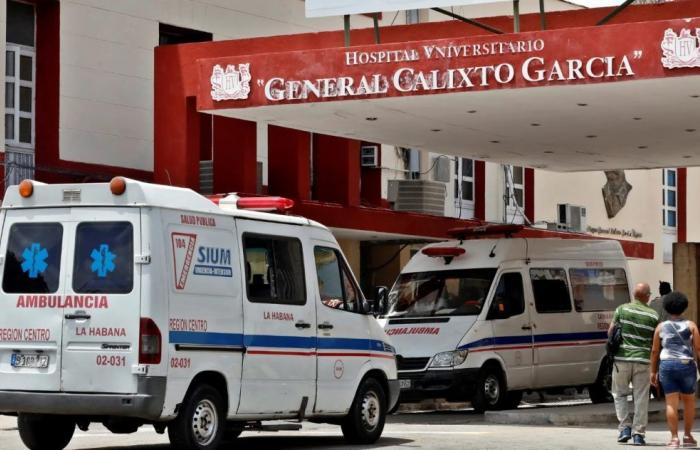The spread in recent weeks of Oropouche Fever and dengue in Cuba has activated the health systems on the island, according to the Ministry of Public Health (Minsap).
According to the government entity, so far the presence of the Oropouche virus has been confirmed in nine provinces and 23 Cuban municipalities.
The provinces that have reported cases are Matanzas, Mayabeque, Villa Clara, Sancti Spíritus, Ciego de Ávila, Holguín, Guantánamo, Santiago de Cuba and Cienfuegos, “based on samples studied in the national reference laboratory of the Pedro Kourí Institute of Tropical Medicine (IPK)”, the Minsap detailed in a note released this Monday.
Dr. Francisco Durán, National Director of Epidemiology, stated that these cases were identified “through follow-up and surveillance actions of non-specific febrile syndromes.”
In addition, he assured that “all” the patients “have evolved favorably, with improvement in symptoms between the third and fourth day of the onset of the disease.”
In statements to the press, cited by the Minsap, Dr. Durán reiterated that the clinical picture of Oropouche Fever is “mild, preceded by an incubation period of 5 to 7 days, which is characterized by fever, headaches, , muscles and joints, sometimes vomiting and diarrhea are also reported.”
“Associated with the virus, in a group of patients it is observed that on the sixth day a condition similar to the initial one appears, which does not leave sequelae and is not associated with the appearance of serious forms or deaths,” added the specialist, who reiterated that it is not There is a specific treatment, only general measures to alleviate the symptoms of the condition.
What you need to know about Oropouche virus
see more
More dengue “suspects”
Regarding dengue, a dangerous disease already recurring on the island, Durán confirmed an “increase in the incidence rate of suspected cases” in recent weeks.
In this regard, he said that the territories with the highest rates are the Isle of Youth, Santiago de Cuba, Guantánamo, Ciego de Ávila, Camagüey, Holguín and Cienfuegos.
“Unlike Oropouche, the clinical picture of this disease can evolve into serious forms and cause death, which is why we insist on the need to go to the doctor in a timely manner,” he warned.
The National Director of Epidemiology recalled that both viruses are transmitted by mosquitoes, which, he said, “complexes the epidemiological scenario on the island and its control.”
Among the factors that contribute to this, he mentioned “inadequate environmental conditions”, high temperatures and increased rainfall.
Sick people and “suspects” of oropouche and dengue on the rise in Santiago de Cuba
see more
Dr. Durán also referred to the situation of acute respiratory infections. Regarding them, he commented that the number of medical attentions for this cause has decreased by 8.4%, although the Minsap information does not specify the period with which this data is compared.
He also pointed out that in Cuba “no cases of Covid-19 are reported, and the circulation of the Influenza A virus and non-pandemic Coronavirus is demonstrated.”
The official communication maintains that “to evaluate the epidemiological situation and the preparation and organization of the territories in the face of challenging complexities, the main directors of the Minsap carry out a tour of all the provinces and the special municipality of Isla de la Juventud.”
In closing, Durán considered “the participation and cooperation of the population” as “the most important thing” in the current epidemiological scenario.
In this sense, he recommended that Cubans “immediately go” to the doctor if symptoms of these ailments appear, and “comply with the home or hospital admission measures as appropriate.”
He also called to “support and carry out our own sanitation initiatives in homes, workplaces and their surroundings,” as well as contribute to the authorities and technicians who carry out actions to eradicate the mosquitoes that transmit these ailments.
The rise in cases of Oropouche Fever and dengue in Cuba occurs at a time when the island is going through a severe economic crisis and its population is hit by the deficit and rising prices of basic products, such as food and medicine, by continuous blackouts, and by deficiencies and difficulties derived from the crisis in medical institutions.
All of this, together with the effects on public hygiene due to the lack of equipment and fuel, breaks and leaks in hydraulic installations, the usual mobility of many people in the country, and the arrival of the rains and the summer season, means that conditions are conducive to an increase in mosquito infestation and, consequently, arboviruses.






